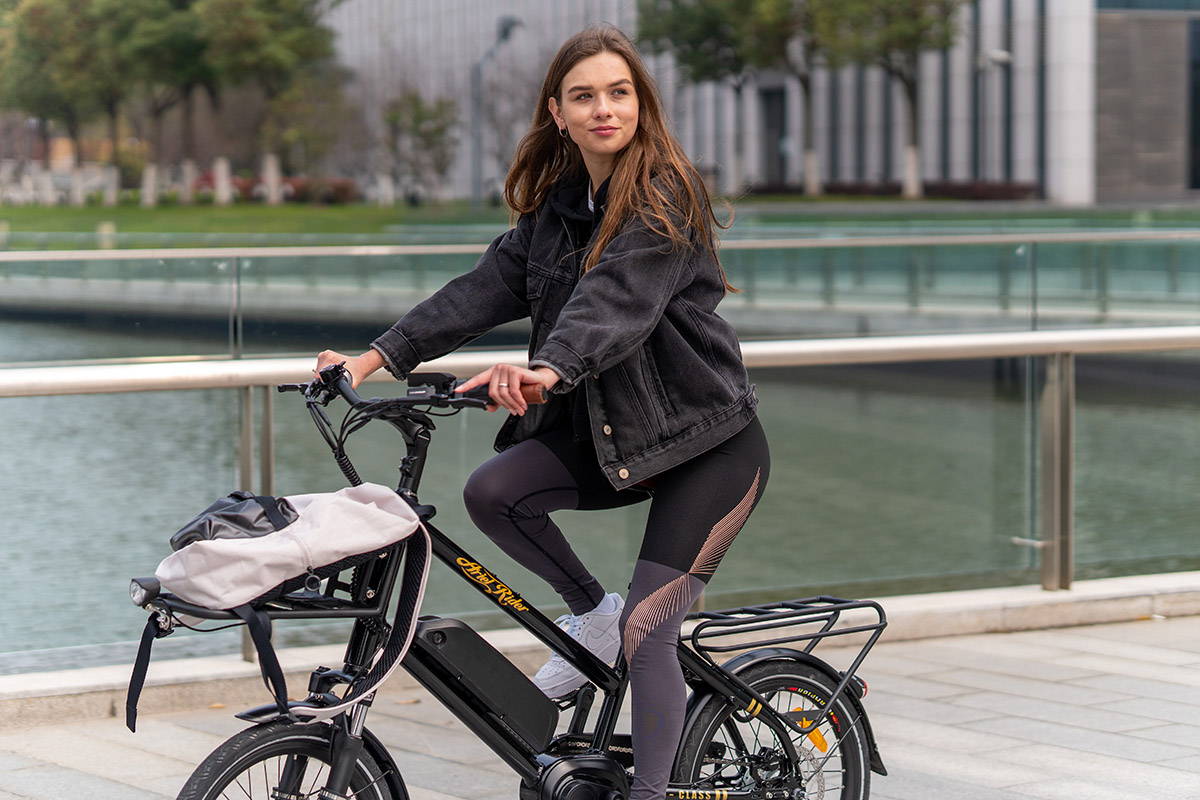The outbreak of Covid-19 has already transformed our lives -from daily routines to vacation plans. All these concerns about social distancing got us confused on how to maintain our outdoor activities. Wondering if it is still possible to ride outdoors? Here’s what you need to know.
May 17, 2020
The outburst of coronavirus, or Covid-19, has had a large impact on our daily lives. People all over the world are being asked to maintain social distance at all times and not to leave their houses except for essential needs.
It is obvious that staying indoor all day long can be really challenging. Plus, getting fresh air and exercising are both essential tasks to keep one’s physical and mental health. That’s why, unless you’re not under isolation or unwell, exercising is encouraged provided that it is done at a safe distance from others.
Luckily, you can still ride your e-bike
Although we all have to avoid unnecessary travel and social contact to protect ourselves from coronavirus, it doesn’t mean you need to stop riding your bike or e-bike. Cycling is recognized as one of the most acceptable methods of exercise -again, on the condition that you do so at a safe distance! Actually, it is a great time to get on an e-bike since it offers one of the safest exercises to keep your physical and mental health in balance, plus it is a functional mode of transport! Here you can compare some of the models according to your daily commuter needs.
Alongside social distancing, you have to add good hygiene practices to your cycling routine to maximize your protection. Below we listed what you need to know on how to ride safely during coronavirus concerns.
Make it solo
As social distancing is the first thing we all need to embrace, you should avoid riding in groups during coronavirus concerns. Although it is nice and fun to have riding buddies, group activities increase the chance of virus’s spread -so you are safe as long as you ride alone. In addition, it is advised to rearrange your route in order to avoid areas which may be crowded. Also, try to ride when you know your route will be less crowded.
Don’t forget: You shouldn’t be on a bike in case you have any symptoms, which may be a fever, a cough, or you are exposed to a person who has tested positive. Remember that this is not only for your protection, but also for the safety of everyone.
Keep it short
It is obvious that we all have to limit the time we spend outdoors, which translates into the fact that you might need to keep your rides shorter during coronavirus concerns. Accept the fact that at present, you are able to ride no more than you should. Delay your usual visits to cafés. Take your own food and water to avoid compulsory stops to buy some. If you still have to buy food or water, wash your hands before and after visiting the shop.
It might be hard to reduce the amount of quality time you are having with your e-bike, but don’t worry. 10 minutes spent outdoors can be enough for a positive impact in both physical and mental health. If you’re not comfortable about the sufficiency of your physical activity, try to rely on extra indoor workouts for more challenges. Opt for lunges or squats, which are great riding exercises you can do without actually riding!
Luckily, e-bikes can take you longer distances at shorter times. Check our models which satisfy every need of the daily commuter.
Keep it clean
We are now living in the times that you should take hygiene seriously while riding. Before and after your ride, make sure you wash your hands -for 20 seconds straight! Keep your hand sanitizer and surface spritzer with you at all times to prevent any infection. Carry tissues to use when cycling, and dispose of them safely in a bin after use as soon as possible. Wash your cycling gloves, and don’t touch your face under any circumstances.
Avoid touching things outside
Bring your gloves to avoid direct contact with frequently touched surfaces, hand sanitizer or wipes. Avoid high-touch surfaces, like elevators and doors, and if possible, traffic buttons as well. Do not touch your face after, if you have to touch the traffic button. A better practice would be using a glove (and not touch your face after with the glove), or your sleeve or elbow.
That’s why hand-washing, keeping at least six feet from others while exercising outdoors or running essential errands, and not touching your face are so important.
Should I wear a mask out on solo rides?
The first thing you need to know about face covering is that they work in both ways: They protect other people from you more than they protect you from the environment. Wearing face coverings helps reduce the virus’s spread especially where social distancing measures are hard to maintain (e.g., supermarkets and pharmacies). So you might consider wearing a face covering or at least carrying one.
Another thing that you should keep in mind is that masks are only really effective if used properly. If done in an incorrect way, taking on and off a mask can increase your hand-to-mouth exposure, therefore cause risks. So if you are opting for any kind of face coverings, make sure you use them properly.
Keep this in mind: Measures such as wearing a face covering and avoiding high-surfaces are not sufficient enough if you are not washing your hands, maintaining social distance or remaining at home if unwell. You should approach it in a comprehensive way to protect yourself, your loved ones and your community.
Stay safe!
Written by B. ONAL




